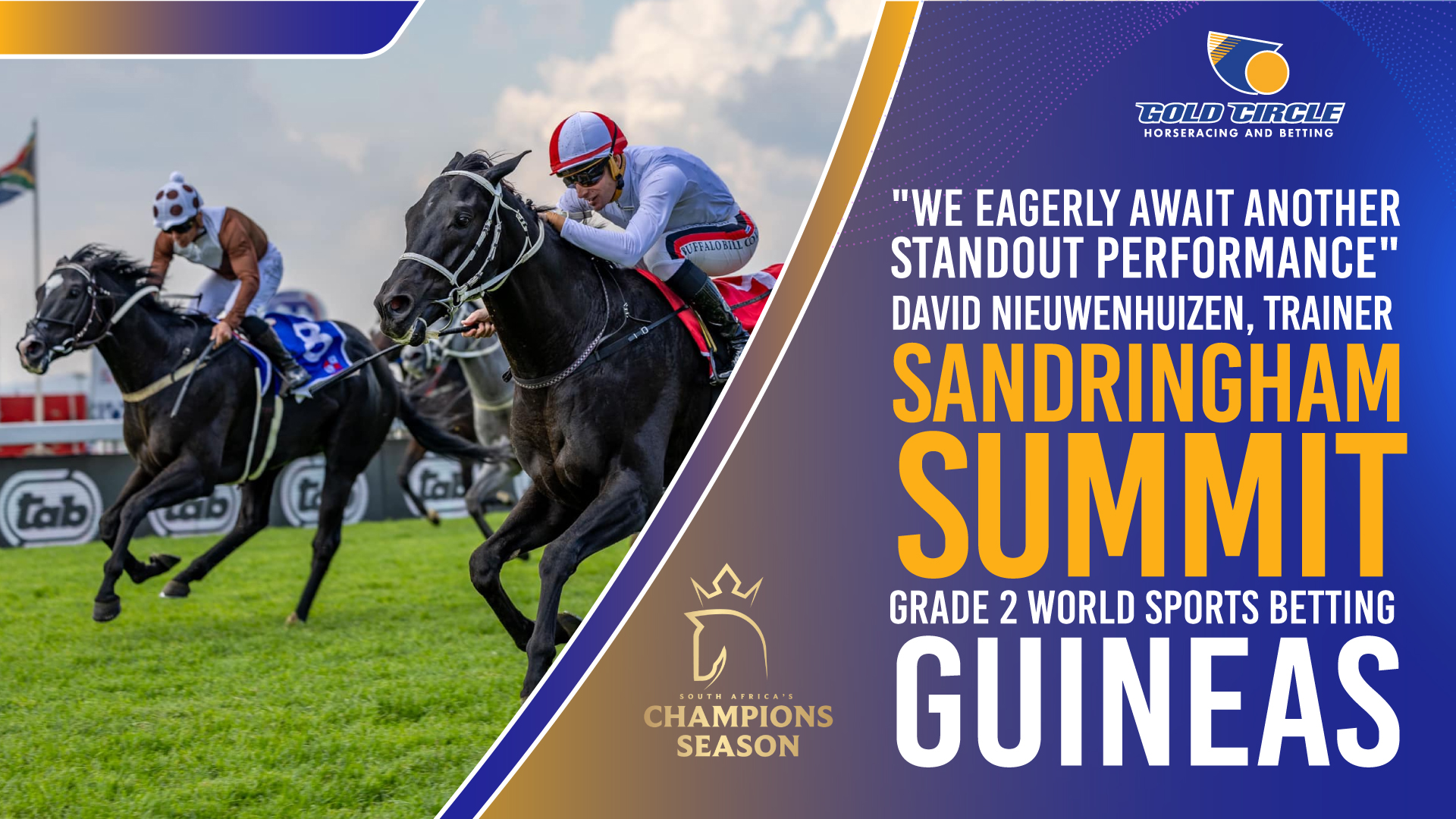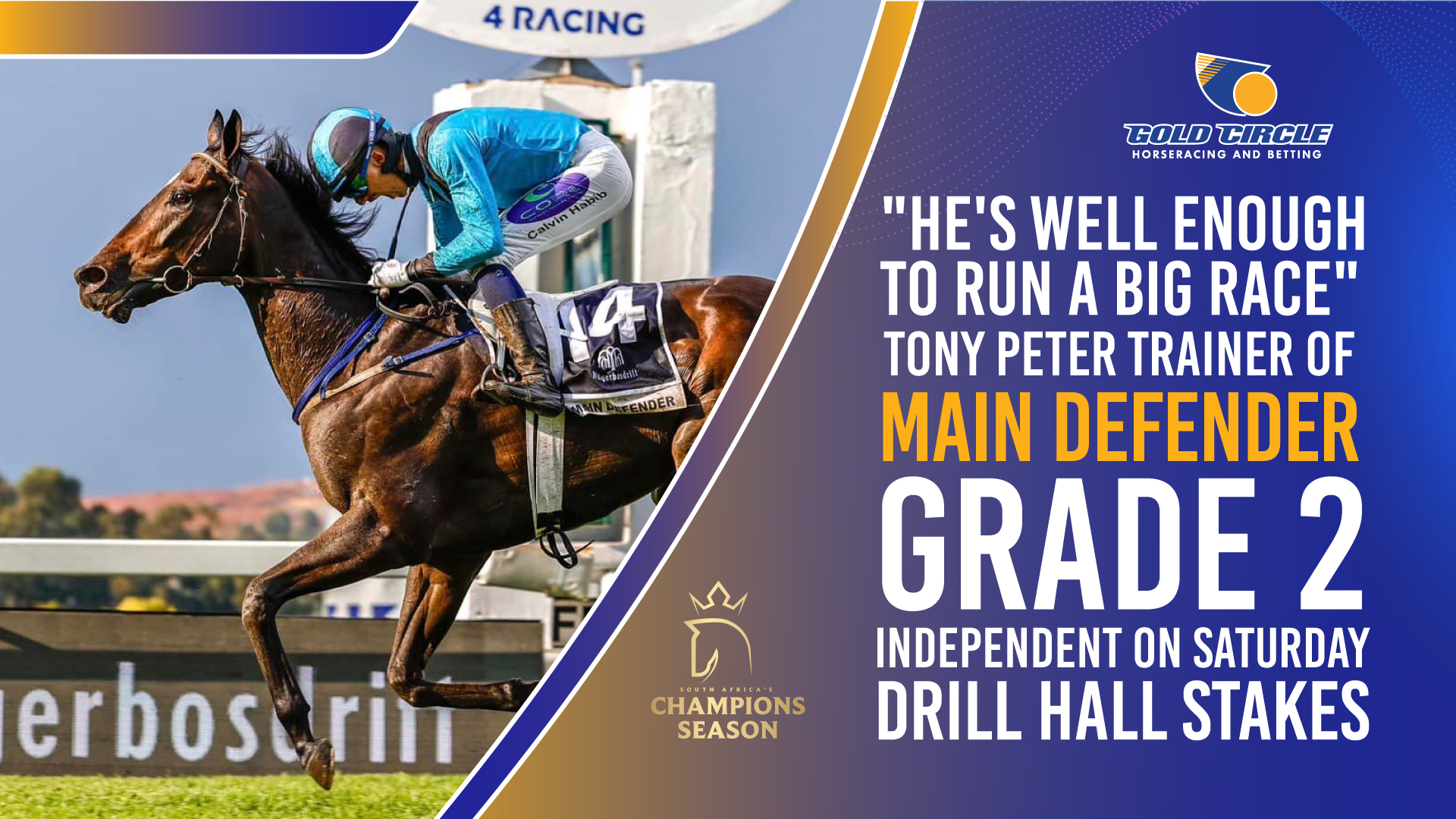Thank You Rian.
THE PHUMELELA EXPERIENCE HAS SHOWN BEYOND A DOUBT THAT COLLECTIVE OWNERSHIP FOR THE BENEFIT OF ALL IS FAR BETTER THAN PRIVATE OWNERSHIP FOR THE BENEFIT OF A PRIVILEGED FEW
In reply to Rian Du Plessis’ response to my article proposing nationalization as an alternative to the totally unsatisfactory dispensation that we now have, it is indeed illuminating that he should go to such lengths to try to defend the indefensible and give credence to my assertion that: who but shareholders or highly-paid officials would not say that corporatization has been an unmitigated disaster.
Without a doubt, he fits into the “very highly-paid official” category and is probably a substantial shareholder as well.
Unlike Rian Du Plessis, who has been in horseracing for the proverbial five minutes, I do have the benefit of hindsight. I have been involved in horseracing for over fifty years and know what it used to be compared to what it is now.
I have been an owner and trainer, a Steward of both the Newmarket and Vaal Turf Clubs, a member of the executive of the Gauteng Racehorse Owners Association, a past chairman of the Owners and Trainers Association and the Transvaal Trainers Association. In addition I was a deputy chairman of the National Federation of Owners and Trainers and a founding trustee of the National Thoroughbred Trust. I have served on numerous committees such as the Handicapping Steering Committee and the Jockeys Remuneration Committee.
We all served without payment for the benefit of the sport and we really do not need the likes of Rian Du Plessis to try and justify how we have come to be in the desperate position we now find ourselves in.
In contradiction to what Rian Du Plessis says, the ANC did not drive corporatization. It was being mooted long before the ANC came to power and there were individuals then already wanting to get their hands on the assets of our sport and industry. The then chairman of the HRA Colin Dunn was a useful tool in this regard and Javu Moleketi subsequently became a real “stooge in wolf’s clothing” in bringing the corporatization process about.
We are fully aware of the how and why we got here and a lot of Rian Du Plessis’ statements and comments need serious correction.
As he purports to value transparency so highly, could he please explain how, if horseracing was in “such financial stress” the clubs were able to provide stakes and facilities on the scale that they did and also have millions in cash and all the unencumbered assets that Phumelela took over from them?
As this was achieved at a time when the clubs were paying five times the rate of taxation that Phumelela presently does, which translates into millions per week and as unpalatable as it may be to people like Rian Du Plessis, the simple truth is, that horseracing does not need the highly-paid officials it is now saddled with. The people who ran horseracing then, put value into the sport instead of sucking its life-blood out.
The position regarding Eastern Cape horseracing is also not the way Rian Du Plessis makes out. Port Elizabeth had a choice of either going in with the other coastal clubs under the Gold Circle umbrella, or throwing in its lot with Phumelela. It wasn’t financial constraints but the promise that Eastern Cape stakes would never be less than 75% of Gauteng stakes that swung the issue.
Northern Cape horseracing really had no choice and the closure of Bloemfontein helped Kimberley to become a lot more viable than it would otherwise have been. The time and cost of getting to Flamingo Park, however, does not make it a viable alternative for Gauteng-based horses.
Rian Du Plessis has not done his credibility any good by making the astonishing statement that “the HRDF monies cannot be described as public money.”
How disingenuous can you be Mr Du Plessis? Would it come as a big surprise to you to learn that at least two Advocates and two Attorneys referred to HRDF funds as exactly that: public money?
The simple truth is that the directors of Phumelela and the Racing Association knew that the HRDF was funded through a Provincial tax sacrifice. No ex-Steward or ex-HRA executive can plead ignorance in this regard and all of Kim Latilla, Barry Walters and Brian Mehl were ex-Stewards at Gosforth Park and Barry Walters was also an ex-chairman of the HRA.
A man in your position, Mr Du Plessis, should know that all money derived from taxation and State coffers is public money and whether you want to admit it or not, Phumelela did benefit from almost R30 million of public money.
Your statement that Mr Moleketi and Mr Walters were correct in saying that there was no grant is also outrageous.
The “Stakes Agreement” was the document of record that governed the relationships and obligations between Phumelela and the Racing Association.
If there was no grant, why was its terms and conditions recorded in Clause 8.2 of the Stakes Agreement?
If there was no grant, why did Phumelela, when receiving the money, undertake to make good any shortfall that may arise in fulfilling the conditions of the grant?
If there was no grant, why did Barry Walters say he would write to Province asking them to relax the grooms’ accommodation and housing portion of the grant?
If there was no grant, why did Phumelela treat the money as an obligation by putting it into a Capital Reserve for Stables after receiving it?
If there was no grant, why did Kim Latilla say “we did it for the betterment of racing” when trying to justify the Racing Association’s role in allowing Phumelela to put the money into their accumulated profits?
If there was no grant, why did the Chairman of Phumelela Mr M P Malungani confirm in writing on 24 February 2004 that the deletion of Clause 8.2 in the Stakes Agreement dated 8 May 2002, did represent the “withdrawal of the capital reserve obligation” mentioned on page 47 of the Phumelela Annual Report for 2002?
Despite what a very confused Javu Moleketi may or may not have done, what Barry Walters said and what you would like us to believe, Mr Du Plessis, there definitely was a grant and Phumelela and the Racing Association did not honour the conditions attached to it.
The facts speak for themselves and if Javu Moleketi did give Phumelela permission to use the uncommitted balance of the HRDF funds amounting to R16 million, then he was very wrong to allow public money to be used to benefit a company’s shareholders and he should even now be called to account for having done so.
The letter from Sonnenberg, Hoffman and Galombik attempted to exonerate Phumelela and the Racing Association by alleging that Javu Moleketi had given permission for Phumelela to use it as they pleased. I gave them a written reply telling them that their conclusions simply did not fit the facts and that we also did not live with Alice in wonderland and that we also did not believe in the tooth fairy.
Rian Du Plessis makes a big issue of B-BBEE which should stand for Broad-Based Black Economic Empowerment, but when it came to the listing of Phumelela it could only be seen to mean Brazenly-Biased Black Elite Enrichment.
He is on very shaky ground here because the obscene disparity between rich and poor is now the burning issue of the day and if not properly resolved, it may yet tear the ruling ANC tri-partite alliance apart.
The blacks most deserving of “empowerment” were the grooms, but they were not only ignored, they had the portion of the grant that was meant to benefit them, taken away and used to benefit the Phumelela shareholders. This is a very strange form of B-BBEE indeed.
Under the circumstances, that Rian Du Plessis can even mention B-BBEE after what was done to the grooms is crass, insensitive and hypocritical.
Given the political climate in the country at the moment, this may yet come back to bite the Racing Association and Phumelela in the backside.
If the programme is so good, Mr Du Plessis, would you please explain why so many owners and trainers are up in arms about it and why a trainer with the knowledge and experience of Ormond Ferraris can say “what is going on? I cannot find any races for my horses.”
There also cannot be a real “meticulous method of race planning” as alleged by Rian Du Plessis without an accurate census of the horse population that is supposed to be programmed for. To attempt programming without a census is at very best a guessing game.
The truth, of course, may well be that they are in fact “meticulously” planning races, but they are not doing it for the whole horse population, but only to suit a select few.
I, probably more than anyone else, was responsible for the merit-rating handicapping system being adopted and it is indeed rich for the likes of Rian Du Plessis to pontificate on the handicapping system and try to gainsay what is obvious to all but those who will not see.
The simple truth is that benchmarks are perverting a very good handicapping system and they must be done away with.
It may come as a surprise to you Mr Du Plessis, but handicapping really has nothing to do with Kings, Queens, Sheiks, the gentry or the wealthy and would it not be nice if they could be looked-up-to rather than being sucked-up-to, as is too often the case in horseracing.
The purchase price of horses also has nothing to do with handicapping, Mr Du Plessis, and it is the group of people you have mentioned, that year after year, buy the most number of expensive flops for racing. Long handicaps will help them more than anyone else, because they may then avoid the galling experience of seeing their multi-million Rand purchases trying to win races at places like Flamingo Park.
There is something very wrong with your arithmetic as well, Mr Du Plessis, as in 1996 there were a total of 154 Highveld fixtures. Kimberley and Port Elizabeth were not part of “Highveld” racing then and they are not now.
In any event, many weeks go by with racing in Gauteng only taking place twice a week, so where these extra fixtures are, we really would like to know.
I think you are on dangerous ground when you bring up transformation, Mr Du Plessis, as the reduction in the size of the fields and the restricted weight-range in handicaps is very unfair and mitigates against rides for our jockeys and in particular our young black ones.
Your insensitivity and hypocrisy in this regard, Mr Du Plessis, may also come back and bite Phumelela and the Racing Association in the backside.
The conflict of interest between shareholders in Phumelela and directors of the Racing Association was well documented in the “Concerned Owners” interlude and its aftermath.
At the time that the Racing Association consented to the HRDF grant money being applied to Phumelela’s accumulated profits, a number of directors of the Racing Association were also shareholders in Phumelela.
It is obvious that Phumelela’s main aim has been to enrich its shareholders and the Racing Association’s mandate is supposed to be the welfare of owners. If you cannot see a conflict of interest when the same individuals have influence in both entities, Mr Du Plessis, then I really think you should either take off the blinkers or get new spectacles.
How Rian Du Plessis can allege that I will ultimately jeopardize the Highveld as a major racing centre by wanting an equitable dispensation for all our horses is difficult to understand.
Let me assure you Mr Du Plessis, Phumelela is already doing a very good job of jeopardizing our racing and if you do succeed in taking over Gold Circle in the Western Cape, you can then really speak about jeopardy to Highveld horseracing.
Rian Du Plessis asks how I would have handled the empowerment of blacks in horseracing.
Firstly, I would have combined empowerment and transformation as one project.
Secondly, I would have ensured there was State ownership of the assets of horseracing, statutory controls and most certainly I would not have had shareholders draining the resources and sucking the life-blood out of the sport and industry.
Thirdly, I would have made the stakes-pool the top priority and used stakes as the engine to power the needs of the stakeholders with percentages for owners, trainers, jockeys and grooms.
Fourthly, I would have made it easy and attractive to own racehorses and encourage the aspiring black community to do so.
Rian Du Plessis complains about the competition from casinos and bookmakers and in so doing again displays his ignorance of horseracing and its history.
Up to and including the 1950’s about 80% of betting was handled by bookmakers. It was only with the advent of off-course totes and exotic betting like doubles, duplas, swingers, trifectas, quartets, superfectas, place accumulators, jackpots, bi-pots and pick-sixes that the balance shifted in favour of the tote.
Long before the advent of Phumelela, horseracing also had competition from casinos that were situated in the then homelands.
Instead of whining about casinos Rian Du Plessis should realize that horseracing has something that the casinos can never have and it is called the form-line. It should be our biggest selling-point and protecting its integrity should be our prime concern.
But herein lies the rub, in order to do so, horseracing needs first-class control of the highest order, segmental timing of races and proper programming and handicapping, so that horseracing does not become four-legged roulette or a lottery, but rather the “mind” game that it should always be.
Instead of whining about bookmakers, Mr Du Plessis, make them contribute to horseracing by paying a levy on every runner in a race. This should apply to all bookmakers and it should be a condition of their betting licence.
One would have thought that such highly-paid officials could do a bit of lateral thinking and pull horseracing out of the quagmire it is sinking into.
The harsh reality of our situation is that stakes have been reduced while nomination and acceptance fees have been drastically increased. The owners have been given a double whammy by Phumelela and the Racing Association. The Phumelela shareholders on the other hand, have continued receiving their dividends unabated.
These simple facts say it all and it is objectionable to be treated this way by a company that derives great benefit from our investment and endeavours, but continues depriving us of a fair share of the proceeds and keeps feeding the greedy snouts in the trough.
Rian Du Plessis writes very sneeringly about collectives and compares Gold Circle to Phumelela and implies that Phumelela is the more efficient operation.
A more honest approach would be to compare the ratio of turnovers to stakes between Phumelela and Gold Circle and see whose stakeholders are getting a fairer share of the proceeds.
In any event collectives are most successful when they do not try to mimic companies by paying their management exorbitant salaries and buying into the high-profile, highly-paid executives illusion.
Horseracing is a sport and always will be. It is a national sport and the biggest collective of all – the nation – should now own its infrastructure.
Finally, seeing that Rian Du Plessis professes to be such a champion of transparency, would he please explain why my post-race interview on Tellytrack was censored from the re-runs and could he also provide simple straightforward answers to the following:
What percentage of tote turnover on local horseracing goes into the stakes pool?
What percentage of tote turnover on overseas horseracing goes into the stakes pool?
What percentage of tote turnover on the soccer six goes into the stakes pool?
What percentage of turnover by bookmakers goes into the stakes pool?
What percentage of turnover from liquor sales goes into the stakes pool?
What percentage of turnover from catering goes into the stakes pool?
What percentage of turnover from functions goes into the stakes pool?
As Barry Walters has already told us that the Stakes Agreement was not written in stone and as we know what Brian Mehl originally promised us, truthful answers to the above questions will be a very illuminating measure of Phumelela’s credibility and the Racing Association’s dedication to its mandate.
Ian Jayes
Via e-mail
.
Previous Mailbags
Where Is Julius Malema When Horseracing Needs Him
Phumelela Responds to Jayes








